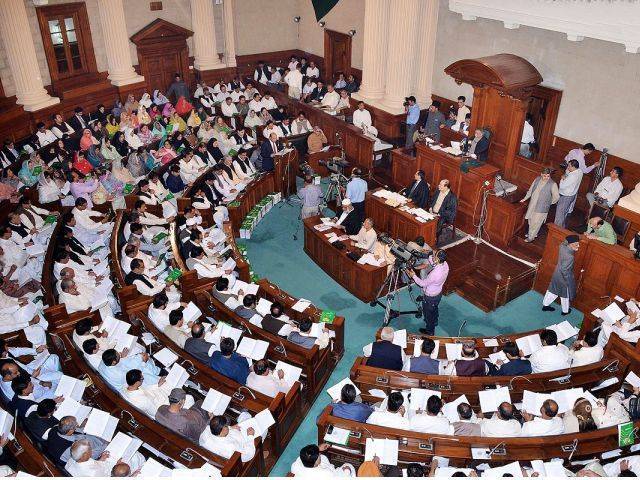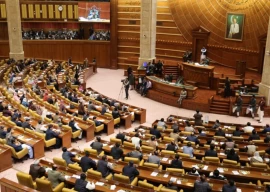
Recent amendments to the Punjab Assembly Rules of Procedure have made all provincial government departments and subordinate offices accountable to the legislature.
The standing committees of the assembly will now be able to review the budget, administrative affairs and performance of the departments under suo motu powers and send their recommendations to the relevant authorities. The departments will be required to implement the recommendations of the standing committees and inform the assembly secretariat within two months.
The committees will be able to review departmental matters twice a year with the prior approval of the speaker. Commenting on the development, Pakistan Tehreek-e-Insaf (PTI) lawmaker Mian Shafi Mohammad said its credit for the major move went to Speaker Chaudhry Pervaiz Elahi and Law Minister Raja Basharat.
Earlier, a special panel formed by the House to amend the Rules of Procedure in 2015 had recommended giving the standing committees the powers to initiate suo motu action and issue production orders.
As many as 100 members of the assembly participated in the preparation of the recommendations of the committee.
However, former chief minister Shehbaz Sharif's team termed the suo motu powers of the committees as interference in his powers and the amendments were dropped.
As a result, the Punjab Assembly lagged behind other assemblies of the country in this regard. As soon as the present assembly was elected, the speaker and law minister decided that reforms would be brought to empower the House.
For this purpose, a five-year strategic plan was developed in collaboration with the British Department for International Development (DFID). First of all, to fulfill the constitutional requirements, the Punjab Assembly Employees Act was enacted.
An expert on parliamentary affairs, Faisal Butter, told The Express Tribune that the suo motu powers had empowered the assembly, the committees and the people.
A total of 15 rules have been amended. A ‘zero hour’ of half an hour has been allocated on Tuesdays and Fridays after the question hour. Adjournment motions will also be debated in the assembly and if the mover is not satisfied then the speaker can refer the matter to the committee concerned.
Formation of a new 17-member Standing Committee on Law Reforms has also been approved. All laws that have not been amended will be reviewed.
The department concerned will be required to submit a reply to the assembly secretariat before a resolution is taken up in the House.
On the other hand, the law department objected to Pakistan Muslim League-Q member Khadija Omar's private Punjab Emergency Service Amendment Bill 2020, due to which it was deferred.
Because of commotion caused by the opposition members, three ordinances and as many bills could not be presented in the assembly and the session was adjourned indefinitely.
Opposition Leader Hamza Shehbaz's production order was not issued for the session. The opposition staged a noisy protests and disrupted proceedings over registration of cases against 25 members of Pakistan Muslim League-Nawaz (PML-N), including chief whip Khalil Tahir Sindhu, on changes of rioting outside the National Accountability Bureau office.
Senior PML-N MPA Samiullah Khan said the party was considering requisitioning another assembly session and was also in touch with the Pakistan Peoples Party (PPP) in this regard.
Meanwhile, the House Agriculture Committee headed by Speaker Pervaiz Elahi approved a recommendation to fix the official price of wheat at Rs2,000 per 40kg.
The resolution was unanimously passed and sent to the provincial government that is expected to respond in two weeks.
In another development, 15 members of a likeminded group of the PTI have suddenly become active again. The estranged members have complained of being ignored by the leadership. However, they have been contacted at the highest level in the province and instructions have been issued to solve the problems of their constituencies.
Published in The Express Tribune, November 16th, 2020.

1732063440-0/elon-(3)1732063440-0-405x300.webp)

1732062434-0/elon-(2)1732062434-0-165x106.webp)


1732011525-0/Express-Tribune-(8)1732011525-0-270x192.webp)


1732012115-0/Untitled-design-(14)1732012115-0-270x192.webp)








COMMENTS
Comments are moderated and generally will be posted if they are on-topic and not abusive.
For more information, please see our Comments FAQ